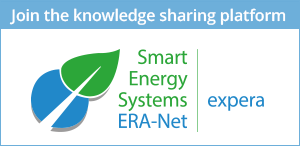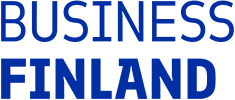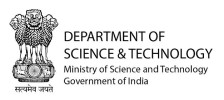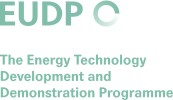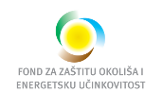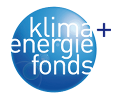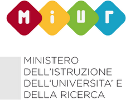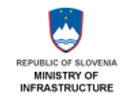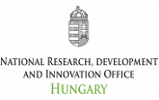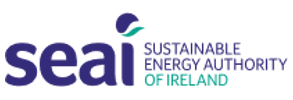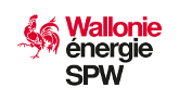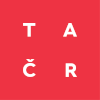User-centred Smart Energy Systems contribute to the Green Deal and Green recovery
As a side-event of the European Sustainable Energy Week (EUSEW), our interactive online event on "User-centred Smart Energy Systems for Real Life Communities” (19 June 2020, 9:30-11:30 am CEST) outlined how the integration of technical and societal approaches will help us to grow after COVID-19. Please find the slides and the full documentation of the online-event after registering on expera.
The event was moderated by the JPP ERA-Net SES and was co-designed with DG ENER. Panellists came from the European Network of Living Labs (ENoLL), CLIC Innovation Ltd. and projects funded by JPP ERA-Net SES. More than 60 people actively participated in the online-event.
In the beginning, Mark van Stiphout, (Deputy Head of Unit C2, Innovation, clean technologies and competitiveness, Directorate General for Energy) and Michael Hübner (BMK Austria, Coordinator of JPP ERA-Net SES) introduced the topic by demonstrating the most recent activities of the European Strategic Energy Technology Plan (SET Plan) Action 4 and their contribution the European Green Deal and Green Recovery. Mark van Stiphout pointed out why smart energy systems is a key part of the SET Plan and relates to the main success factors of this strategic plan which refers to leaders with long-standing commitment, the outreach to broader innovation ecosystems (including for instance CLIC, ENoLL) or its BRIDGE community (see Figure 1).
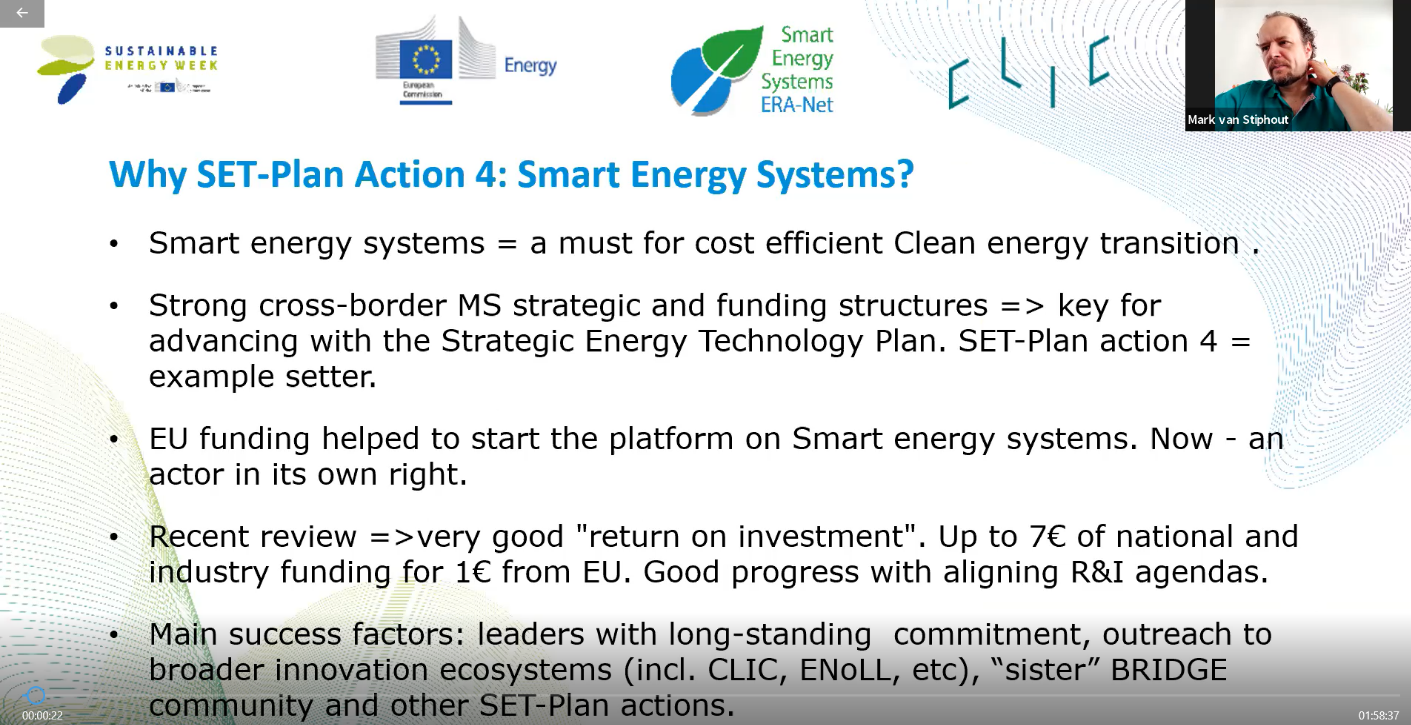
Figure 1: Mark van Stiphout presents the importance of Smart Energy Systems for SET-Plan Action 4.
In the next part of the event, three experts pitched their experiences with as well as their role in real-life communities:
Joëlle Mastelic, Lead of the Energy and Environment Action Oriented Task Force, ENoLL presented the work of the European Network of Living Labs which comprises over 200 Living Labs.
Jatta Jussila, Managing Director of CLIC Innovation presented the case study Smart Energy Åland, which is a full-society-scale platform to demonstrate how a society can run self-sufficiently on 100% renewable energy, without increasing the cost to the end customer as well as her responsibility in the Call for Expression of Interest for Living Labs and Testbeds within the JPP ERA-Net SES initiative.
Bartlomiej Arendarski, JPP ERA-Net SES project lead at Fraunhofer Institute IFF pitched some results of the initiatives RDD project RELflex, which focuses on activating flexibility in industry by a) identifying flexibility, b) digitalizing companies to activate flexibility, and c) creating a system accepted by workers by actively integrating them in the process.
Lively group discussions followed on LLs and their contribution to clean energy transition and green recovery:
#1: LLs preparing society for sustainable post-COVID times
#2: LLs as partners for ongoing and future RDD projects
#3: Political and organizational actions to foster the implementation of more LLs to support the European Green Deal and green recovery
A collaborative online whiteboard tool was employed for using design-thinking methods virtually. Puzzle pieces were created for matching key results of the single group sessions, which were used as a call for further action (see Figure 2).
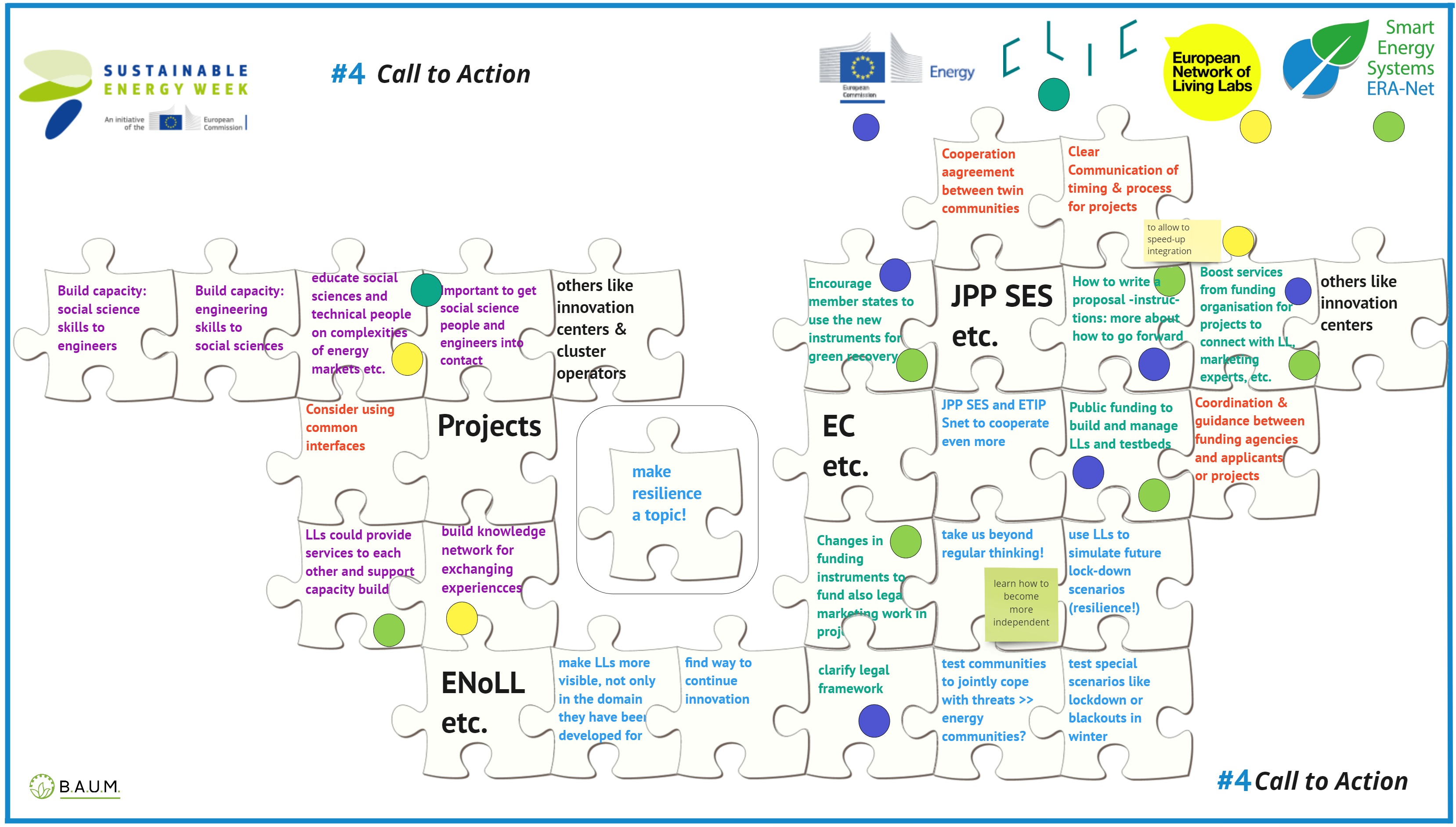
BACK TO NEWS OVERVIEW
